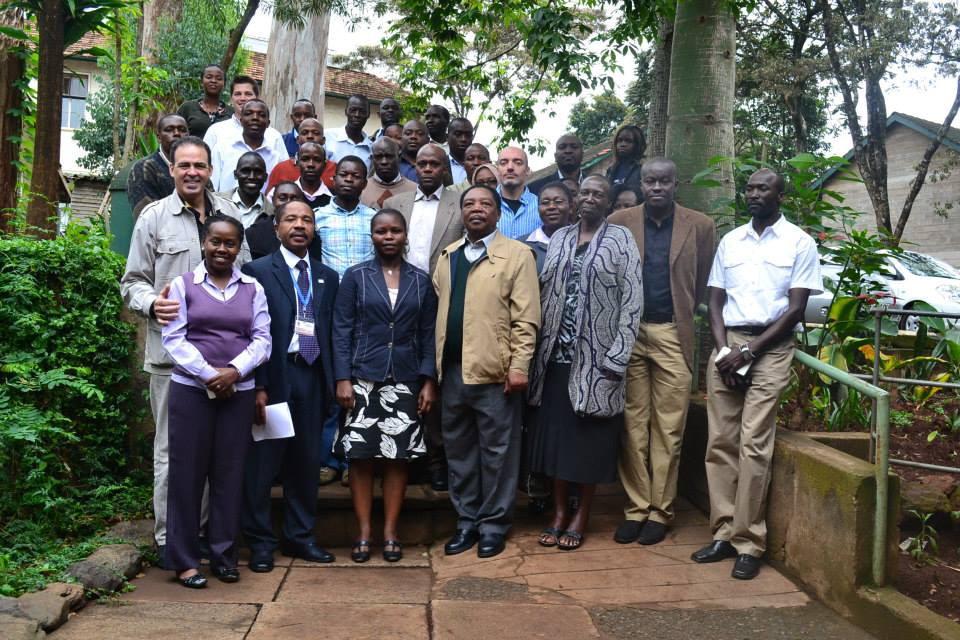As part of the project, Kenyan scientists and students received additional training in various components of biodiversity research, specifically taxonomic revisions and new species descriptions, and molecular phylogenetic analyses on DNA sequence data. This allowed unfinished fish taxonomic work to be completed, greatly increasing knowledge of the Kenyan freshwater fish fauna. Researchers sought to impart this knowledge to local indigenous people to increase their desire to protect fish species and their riverine habitats.
The team also sought to improve the state of specimen preservation at NMK through the purchase of supplies for the ichthyological collections. They also added Web-based dissemination of data from the collection. Dr. Nyingi and her colleagues published two papers on their findings, as well as one book chapter co-authored by the PI. The team participated in the Pathways Kenya 2016 International Conference: Integrating Human Dimensions into Fisheries and Wildlife. The PI organized a special session at the conference about conflicts between humans and wildlife in water dependent ecosystems of arid and semi-arid areas, where most of the presentations involved work supported by PEER funding.
The team received a new grant of approximately 24000 euros to study the impact of dams on Kenyan wetlands, funded by the Kenya National Commission for Science, Technology and Innovation and the French Embassy in Kenya. The PI was also awarded the Palmes Académiques for exceptional scientific and educational merit by the French ambassador to Kenya.
The project supported two female undergraduate students during internships at the Ichthyology Section under the Kenya Wetlands Biodiversity Research Team, as well as two graduate students for joint projects on freshwater fish diversity work in Lake Turkana.
PublicationsOlivier Hamerlynck, Wanja Dorothy Nyingi, Jean-Luc Paul, and Stéphanie Duvail. 2019. The fish-based farming system: maintaining ecosystem health and flexible livelihood portfolios. Chapter 11 in J. Dixon et al. (eds.),
Farming Systems and Food Security in Africa, Priorities for Science and Policy Under Global Change (1st ed.). Routledge.
https://doi.org/10.4324/9781315658841 Ray C. Schmidt, Henry L. Bart Jr., and Wanja Dorothy Nyingi. 2015. Two new species of African suckermouth catfishes, genus
Chiloglanis (Siluriformes: Mochokidae), from Kenya with remarks on other taxa from the area.
Zootaxa 4044(1): 45-64.
http://dx.doi.org/10.11646/zootaxa.4044.1.2
D.J. McCauley, T. E. Dawson, M. E. Power, J. C. Finlay, M. Ogada, D. B. Gower, K. Caylor, W. D. Nyingi, J. M.Githaiga, J. Nyunja, F. H. Joyce, R. L. Lewison, and J. S. Brashares. 2015. Carbon stable isotopes suggest that hippopotamus‐vectored nutrients subsidize aquatic consumers in an East African river.
Ecosphere 6(4): 52.
http://dx.doi.org/10.1890/ES14-00514.1




